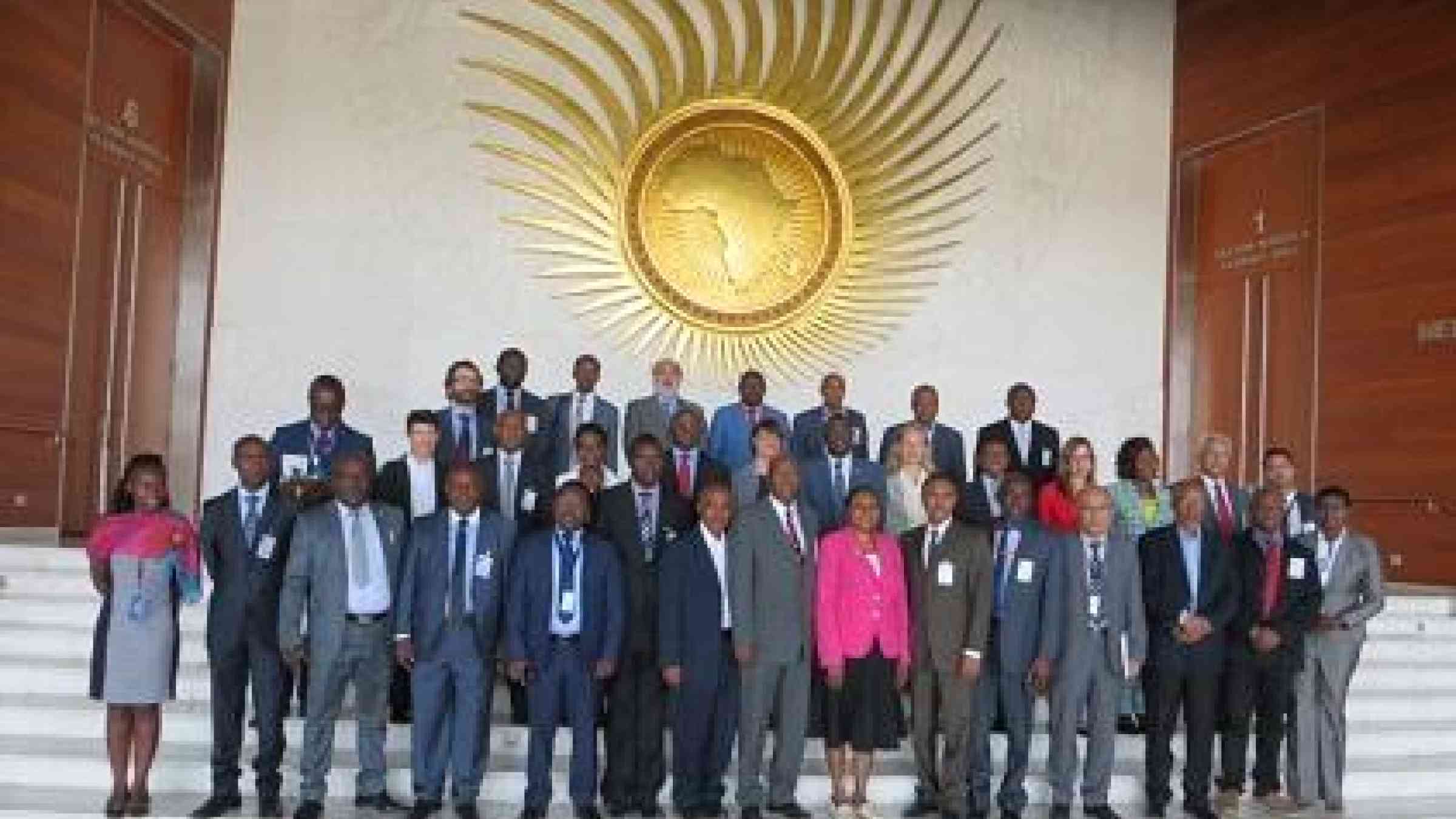Sendai takes root in Africa

ADDIS ABABA, 23 February 2016 – African countries have held fresh talks to drive forward their implementation of the Sendai Framework for Disaster Risk Reduction, a global agreement that is part of wider efforts to make development sustainable.
The 8th Africa Working Group, which brought together governments, the African Union Commission, the continent’s regional economic communities and other partners, met in the Ethiopian capital Addis Ababa last week.
Mr. Amjad Abbasar, Head of the UNISDR Regional Office for Africa, said that the meeting created a “solid foundation for implementing a series of intergovernmental agreements adopted in 2015 in Africa, championing disaster risk reduction as the medium for risk-sensitive development.”
On average, almost two disasters of significant proportions have been recorded every week in Sub-Saharan Africa since 2000. Water, weather and climate hazards, notably floods and drought, dominate the region’s disaster profile, affecting around 12.5 million people per year.
The Sendai Framework, adopted by the international community in March 2015, seeks to bring about substantial falls in disaster mortality, numbers of affected people, and economic losses.
The first in a series of four global accords put in place last year to shape the global agenda through to 2030, the Sendai Framework was followed by the Addis Ababa Action Agenda on financing for development, the Sustainable Development Goals, and the COP21 Paris Agreement on climate change.
Speaking at the Africa Working Group meeting, Dr. Janet Edeme, Acting Director of the African Union Commission’s Department of Rural Economy and Agriculture, underscored the links between implementing the Sendai Framework and the Sustainable Development Goals.
The Africa Working Group is the continent’s top technical body for the coordination of disaster risk reduction. Its current task is to flesh out the Yaoundé Declaration, a Sendai Framework implementation plan that was adopted by ministers last July at a conference in the capital of Cameroon.
At the end of the two-day meeting, members of the Africa Working Group issued a Summary Statement highlighting the importance of implementation of the Sendai Framework in Africa particularly in light of the continued spate of disasters on the continent, including those induced by the El Nino climate phenomenon. They also recognised that the series of post-2015 agreements provide a unique opportunity to Africa to bring together international frameworks through the lens of disaster risk reduction for resilience.
The meeting was convened with financial support from the European Union as part of its cooperation with the African, Caribbean and Pacific Group of States. Its outcomes will be deliberated at various future meetings, notably the 6th Session of the Africa Regional Platform for Disaster Risk Reduction later this year.